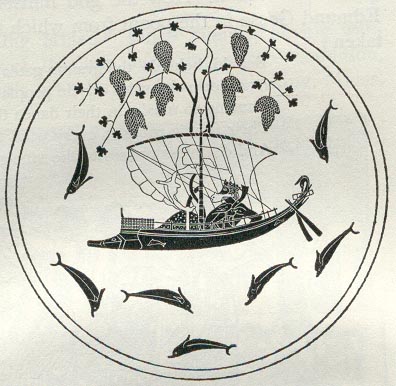Masterpieces of Western Literature
| Unit 2 |
|
English
201:
Masterpieces of Western Literature |
| .Unit 2 Reading | Course Reading | Entry Page |
| Introduction | Background | .Explication | Questions | Review |
Introduction:
Self:You may think that the sense of self is universal. Actually the "self" is both a bio-developmental accomplishment & the product of a specific culture that defines or offers various identities. Strangely, one cannot develop a self without having developed a social identity that is largely defined by the culture in which one grows up. You might be interested in how different the Japanese sense of self is, being largely based on Confucian ethics. Follow the link to read selections from Ruth Benedict's study of Japanese culture:
Japanese Identity
 |
Narcissus:the prominent characters in The Iliad (AK, AG, Paris) are narcissists. This is a psychological term used to characterize someone who is self-absorbed & who has little empathy or concern for others. If you do not know the myth about Narcissus, look it up. Echo fell in love with Narcissus, who remained unresponsive. Apparently Narcissus' behavior was outrageous (hubris) enough to cause Nemesis to re-establish the balance or norm of human behavior by arranging for Narcissus to fall in love with someone as unattainable & unresponsive as he had been. |
 |
Human growth & development reaches a stage when the infant experiences denial. It wants & it doesn't get what it wants. In addition, there is something like dawning self-consciousness of this experience. The infant does not simply fail to get this or that experience. It feels negated; as though mom has just shrugged her shoulders in total indifference to the infant's very existence. This universal human experience is so shocking that we cannot accept it. Accepting it would be death. Instead, we erase or deny the experience by investing in a super-ego. (The illustration is of Dionysus, the god of wine & the unconscious.) |
Theme:Honor. Honor is composed of two or three parts. First, it requires a discrete form, a distinct self & name (super-ego). Second, this person must possess inordinate power. Third, the power is benign or generated in a socially approved way. There is also an implicit dynamic or temporal lesson. If one adopts the hero as a model & imitates important features of his distinctive behavior (morality, virtue), then one can gain or share some of this power/honor.
Reality:our experience of the id is often characterized as responding to the pleasure principle. Our involvement with the super-ego is often characterized as dealing with the reality principle. Of course our subjective experience is inescapable. Asian cultures are highly conscious of this. Our Western culture is not so conscious of this. In fact, the West has prized the objective (the empirical, the scientific, the economic) over the subjective. In this section of The Iliad, notice how it is not "real" enough for a character to simply feel powerful or dominant. He must objectively prove his power by compelling someone else to acknowledge it; to honor it. AG takes Briseis, not because he is interested in her, but to prove to AK that he (AG) has more power. AK prays for his comrades to be killed so that the army will regret that it did not oppose AG & recognize AK as more powerful than AG; to honor AK above AG. Power is both recognized & approved through ceremonies of honor.
Click on the next section: Background
above.